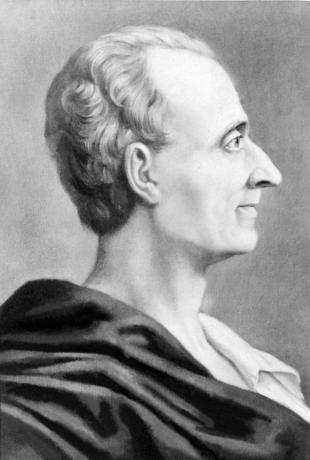THE Sociology it is the science that studies society and the phenomena that occur in it, whether cultural, economic or religious.
Sociology is basically concerned with five elements: the social structure, social groups, the family, social classes and the roles that the individual occupies in society.
What is sociology?
Sociology seeks to explain the various factors that differentiate human behavior or, on the contrary, why social groups several tend to behave similarly.
For the sociological study, the social group, the interactions between individuals and the means used to communicate these individuals in the group are considered.
Thus, the sociologist's object of study may be different human organizations such as churches, companies, schools, hospitals, sports teams, etc. that is, all social institutions.
It also analyzes cultural groups, the form and impact of government management within a given group.
Thus, sociology starts from a certain society concept to investigate its social structure and the social relationships in this medium.
How did sociology come about?
Studies relating to society gained strength after the end of the French Revolution and the advent of a society dominated by the industrial mode of production.
Therefore, rather than looking for the answer in theology or politics, several thinkers preferred to understand economic changes from the perspective of social groups.
Sociology as a discipline separate from other human sciences will emerge with French Auguste Comte (1798 - 1857) who coined the term.
He was the author of the first systematic study on sociology and for him this science is the culmination of the scientific method.
Comte defended the rationalism in the face of everything, but I wanted to transform scientific matters into a new religion, the Positivism.
However, other thinkers had already analyzed human relations from a group point of view such as Saint-Simon (1760-1825) and Alexis de Tocqueville (1805 - 1859). Furthermore, Karl Marx (1818 - 1883) will make a major contribution to the theory of social classes.
Pioneers of sociology as a science were Emile Durkheim (1858 - 1917), Vilfredo Pareto (1848 - 1923), Max Weber (1864 - 1920) and Marcel Mauss (1872-1950).

Summary on sociology
Currently, several disciplines have merged with sociology, giving rise to the sociology of education, law, culture, etc.
Sociology of Education
The sociology of education studies the relationship between learning and society, the impact of the school on different social spheres, the role of the teacher, etc.
It explores the theme of the teacher as an educational agent, but also the structure of a classroom and student-teacher communication.
Legal Sociology
The Sociology of Legal or Sociology of Law aims to understand the set of legal laws that govern a society from the social action of political parties, pressure groups, economic elites, etc.
Among his fields of research are the difference between the law and its application to the society where it is circumscribed.
Thus, the Law can be questioned whether it is fair, whether it protects a certain social group and harms another, whether it contains elements that favor the inclusion of unprotected extracts, etc.
Sociology of Work
The Sociology of Work analyzes the relationships between human beings and nature, whether through physical activities or through intellectual activities.
Talking about work means studying the changes caused by man in nature, as he takes materials from it to transform it. With his creativity, man will use his intelligence to survive in nature.
As with everything in sociology, the concept is not fixed and the idea of work will also change according to the historical moment. For example: in slave societies there is a clear division into who does the heavy work and who does the lighter work.
Some intellectuals were instrumental in thinking about work relations as Adam Smith (1723-1790), Karl Marx, Frederick Taylor (1856-1915) and Henry Ford (1863-1947).
Sociology in Brazil
The creation of sociology in Brazil takes place in parallel with its development in Europe, but with the specificities that characterize underdeveloped countries.
If in Europe the constitution of a capitalist society was evaluated, after a medieval society, in Brazil, the first objects of study could only be the formation of the nation. How to define Brazilian? What role would Brazil have in the "concert of nations"?
The question will occupy all Brazilian thinkers such as Manoel Bonfim (1868-1932), Eduardo Prado (1860-1901), Gilberto Freyre (1900-1987), Sérgio Buarque de Holanda (1902-1982), and many others.
Brazilian sociologists
- Fernando Henrique Cardoso
- Florestan Fernandes
- Darcy Ribeiro
Read more:
- Roots of Brazil
- Social Structure
- Social Institutions
- What is a social fact?
- Sociology in Enem: what to study
- Sociology Issues
To learn more, download the PDF of the book "What is Sociology?" by Carlos Henrique Martins by clicking on here.

